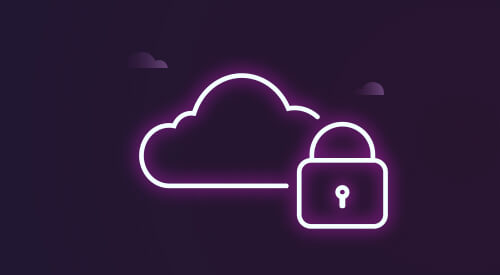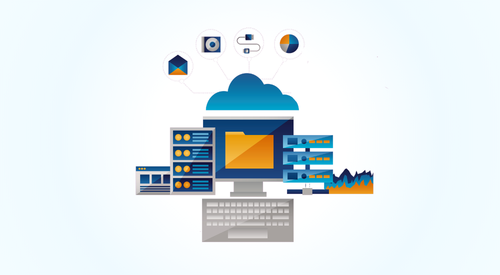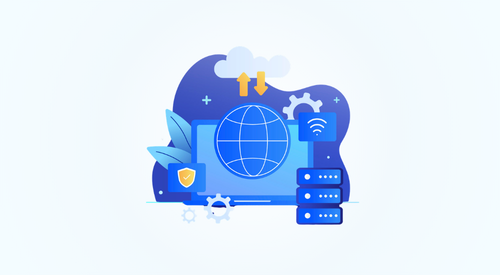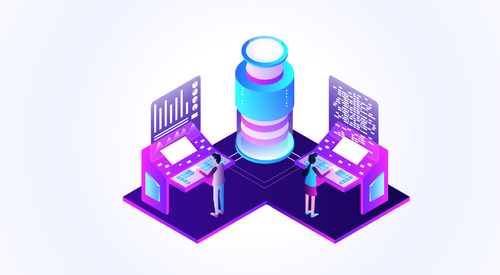

Singapore’s business landscape is thriving on the cloud. From startups to established enterprises, companies are increasingly embracing cloud computing for its undeniable advantages. However, migrating to the cloud doesn’t eliminate security concerns. A new set of cloud security challenges Singapore arises in this dynamic environment, demanding a strategic approach to safeguard sensitive data and applications. In this blog, we’ll delve into the top security risks businesses face in the Singaporean cloud landscape and explore effective solutions to ensure a secure and successful cloud journey.
Talk to Niveus: Expert cloud security solutions
In essence, cloud computing refers to the on-demand delivery of IT resources – servers, storage, databases, software, networking – over the internet. Businesses access these resources through a web browser or API, eliminating the need for physical infrastructure on-site. This shift to the cloud offers a multitude of benefits for businesses in Singapore, a country experiencing a cloud computing boom.
According to a report on the Singapore Cloud Market released by BCG, public cloud adoption in Singapore is growing at a staggering rate of 25%. This outpaces the growth observed in the US and Western Europe, highlighting Singapore’s position as a leader in cloud adoption within the Asia Pacific region. The report also emphasizes that there’s great potential for further growth in the coming years. However, with this rapid embrace of the cloud comes a new set of hurdles – cloud security challenges Singapore.
The Cloud Security Landscape in Singapore
Singapore is actively building a reputation as a secure and reliable cloud hub for the Asia Pacific region. The government heavily invests in cybersecurity infrastructure and promotes the adoption of cloud security best practices. However, challenges persist, requiring businesses to stay vigilant.
Shared Responsibility Model Adds Complexity
Cloud security adheres to a “shared responsibility model,” where the cloud provider secures the underlying infrastructure, while the business remains responsible for securing its data and applications in the cloud environment. This division of responsibility can be complex for businesses to navigate, requiring a clear understanding of their security obligations.
Regulatory Landscape
Singapore’s Personal Data Protection Act (PDPA) governs the collection, use, disclosure, and disposal of personal data. The PDPA emphasizes data privacy and security, requiring businesses to implement appropriate safeguards for personal data stored or processed in the cloud. Compliance with the PDPA necessitates a strong cloud security posture, as data breaches can lead to hefty fines and reputational damage.
The PDPA compels businesses to carefully evaluate the security practices of their cloud providers and ensure they have robust data security measures in place. This may involve data encryption, access controls, and incident response plans – all critical aspects of a comprehensive cloud security strategy.
Top Cloud Security Challenges for Businesses in Singapore
While the cloud offers undeniable benefits, navigating its security landscape presents unique challenges for businesses in Singapore. Here are some of the most common issues to be aware of:
Data Breaches
Data breaches remain a top concern in the cloud. These incidents can occur due to various factors, including:
- Unauthorized access: Hackers may exploit vulnerabilities in cloud security configurations or steal user credentials to gain access to sensitive data.
- Insider threats: Malicious employees or contractors with authorized access can steal or leak data.
- Accidental data exposure: Human error, such as misconfigured access controls or sending data to the wrong recipient, can also lead to breaches.
Data breaches can have devastating consequences for businesses, resulting in financial losses, reputational damage, and legal repercussions.
Misconfigurations
Cloud platforms offer a vast array of settings and configurations. Unfortunately, even minor misconfigurations can create significant security vulnerabilities. For example:
- Leaving storage buckets publicly accessible can expose sensitive data to anyone on the internet.
- Granting overly broad access permissions to users can increase the risk of unauthorized access and data breaches.
- Failing to enable encryption for data at rest and in transit can leave it vulnerable to interception.
Misconfigurations are often unintentional but can be easily prevented with proper training, automated security tools, and a focus on secure cloud architecture.
Insider Threats
Even with robust security controls in place, disgruntled employees, negligent insiders, or compromised accounts can pose a serious threat. Insider threats can involve:
- Stealing sensitive data or intellectual property.
- Sabotaging cloud resources or applications.
- Abusing access privileges for personal gain.
Mitigating insider threats requires a multi-layered approach, including:
- Implementing strong access controls and user activity monitoring.
- Fostering a culture of security awareness within the organization.
- Conducting regular security audits and penetration testing.
Shared Responsibility Model
The shared responsibility model in cloud security divides security obligations between the cloud provider and the business. The cloud provider secures the underlying infrastructure (physical servers, network) but does not manage the security of data and applications running on the platform. This means the business is responsible for:
- Securing its data with encryption and access controls.
- Managing user identities and access permissions.
- Maintaining the security of cloud-based applications.
Understanding the shared responsibility model is crucial for businesses to allocate appropriate resources and implement effective cloud security measures.
Legacy Security Practices
Traditional on-premise security practices often rely on physical security measures and perimeter defenses, which may not translate effectively to the cloud. The cloud environment is dynamic and requires a more holistic approach to security. Legacy practices may not adequately address:
- The distributed nature of cloud resources.
- The need for granular access controls in a shared environment.
- The constant evolution of cloud threats and vulnerabilities.
Businesses must adapt their security strategies to embrace the unique characteristics of the cloud and leverage the security features offered by cloud providers.
Emerging Threats
The cloud security landscape is constantly evolving. New and sophisticated threats emerge regularly, requiring businesses to stay vigilant. Some emerging threats to watch out for include:
- Supply chain attacks: Targeting vulnerabilities in third-party software or services used within the cloud environment.
- Cloud malware: Malicious software specifically designed to exploit weaknesses in cloud platforms and applications.
- Fileless attacks: Malware that doesn’t rely on traditional executables, making them harder to detect and prevent.
Staying informed about these evolving threats and implementing proactive security measures with the best practices available is essential for protecting data and applications in the cloud.
Cloud Security Solutions and Best Practices
While the cloud presents unique security challenges, there are effective solutions and best practices that businesses in Singapore can adopt to mitigate risks and safeguard their data. Here are some key strategies to consider:
Implementing Strong Access Controls
The principle of least privilege dictates that users should only be granted the minimum level of access needed to perform their job functions. This reduces the potential damage caused by compromised accounts. Additionally, multi-factor authentication (MFA) adds an extra layer of security by requiring a second verification factor, such as a code from a mobile app, alongside a username and password. This significantly reduces the risk of unauthorized access, even if hackers steal login credentials.
Encryption
Encryption scrambles data into an unreadable format, rendering it useless to anyone without the decryption key. Businesses should encrypt data at rest (stored in the cloud) and in transit (traveling between systems). Most cloud providers offer built-in encryption features, but it’s crucial to understand and configure them appropriately. Additionally, consider encrypting sensitive data at the application level for an added layer of protection.
Regular Security Monitoring
Proactive security monitoring is essential for detecting and responding to threats quickly. Leverage the built-in monitoring tools offered by your cloud provider to track user activity, identify suspicious behavior, and gain insights into potential security issues. Consider implementing additional security information and event management (SIEM) solutions for a more comprehensive view of your cloud security posture.
Employee Training
Employees are often the first line of defense against cyberattacks. Regular training on cloud security best practices can significantly reduce the risk of human error. Educate employees on identifying phishing scams, password hygiene, and responsible data handling practices. Training should be ongoing and tailored to address the specific cloud services your business utilizes.
Incident Response Planning
Having a well-defined incident response plan ensures a coordinated and efficient response to security breaches or other security incidents. The plan should outline steps for identifying, containing, eradicating, and recovering from an incident. This includes roles and responsibilities for different teams, communication channels, and procedures for notifying authorities if necessary. Regularly test and update your incident response plan to ensure its effectiveness.
Niveus Solutions: Your Trusted Partner in Cloud Security
Navigating the complexities of cloud security can feel overwhelming. That’s where Niveus Solutions comes in. We are a leading cloud consulting firm in Singapore, dedicated to empowering businesses with secure and scalable cloud solutions. Our team of certified cloud security experts possess extensive experience in helping organizations of all sizes overcome cloud security challenges and achieve their business goals.
Understanding Your Cloud Security Needs
At Niveus, we take a collaborative approach. We begin by thoroughly understanding your unique cloud environment, security requirements, and compliance needs. Our cloud security consultants work closely with your team to identify vulnerabilities and develop a comprehensive security strategy tailored to your specific situation.
Niveus offers a comprehensive suite of cloud security services designed to address the top challenges faced by businesses in Singapore. We ensure that your cloud security concerns don’t hinder your business growth.
Conclusion
Cloud computing offers immense benefits for businesses in Singapore, but it also introduces new security challenges. Understanding these challenges and implementing effective security solutions is crucial for protecting sensitive data and ensuring business continuity.
By adopting best practices like strong access controls, encryption, and ongoing monitoring, businesses can significantly reduce their risk exposure. Investing in employee training and having a robust incident response plan further strengthens your cloud security posture.
The cloud security landscape is constantly evolving, but with the right approach and the support of trusted partners like Niveus Solutions, businesses can confidently embrace the cloud and unlock its full potential. The future of cloud security is bright, with innovative solutions emerging to address ever-changing threats. By staying informed and taking proactive measures, businesses can ensure their cloud journey is secure and successful.











